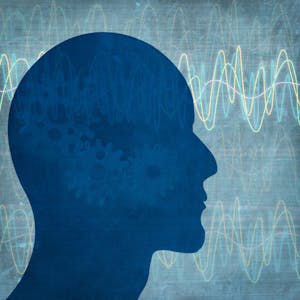Explore the foundational principles of Self-Determination Theory (SDT) in this comprehensive course offered by the University of Rochester. Delve into the nuanced understanding of motivation, psychological development, and wellness, with a focus on the impact of autonomy, competence, and relatedness in fostering behavioral persistence and healthy developmental processes. Led by Professor Richard Ryan, co-founder of SDT, this course provides practical insights applicable across educational, work, sport, healthcare, and psychotherapy settings.
What You'll Learn:
Certificate Available ✔
Get Started / More Info
This course is divided into five modules, each offering a detailed exploration of the principles and practical applications of Self-Determination Theory (SDT), providing students with a comprehensive understanding of motivation, well-being, and behavioral phenomena in diverse social contexts.
This module provides an introduction to Self-Determination Theory (SDT) and intrinsic motivation. Participants will gain insight into the concept of motivation, intrinsic motivation, and the impact of rewards on intrinsic motivation. Additionally, they will explore practical examples, such as the role of intrinsic motivation in video games, and the organismic perspective within SDT research.
Explore the continuum of relative autonomy and the various forms of motivation, including everyday examples and the facilitation of autonomous motivation. Participants will also delve into the impact of internalization on well-being, with a specific focus on the universal impact of basic psychological needs.
This module delves into people's daily variations in well-being, life goals, happiness, mindfulness, and vitality, emphasizing the impact of basic psychological needs on individual well-being. Participants will gain a nuanced understanding of how these factors influence motivation and overall wellness.
Participants will explore the connection between pro-social behavior, need satisfaction, close relationships, parenting, identity formation, and intrinsic motivation in educational and work settings. The module also focuses on facilitating positive engagement using Self-Determination Theory, offering practical insights applicable across various domains.
This final module examines research and interventions using Self-Determination Theory in promoting health and wellness. Participants will also explore the role of motivation and autonomy in psychotherapy, counseling, behavior change, sports, physical activity, coaching, and the impact of basic psychological needs across cultures, economic, and political systems.
Discover the complexities of doping in sports with a multidisciplinary approach, exploring its cultural, social, and biological dimensions.
Psicología de la Percepción delves into the workings of our senses, exploring the distinction between sensation and perception, the role of memory and attention,...
Explore the fascinating world of social psychology with this course, delving into the reasons behind human behavior and offering valuable insights for everyday life....
This course explores the fundamental processes of social groups within organizations, addressing concepts such as group dynamics, social facilitation, leadership,...